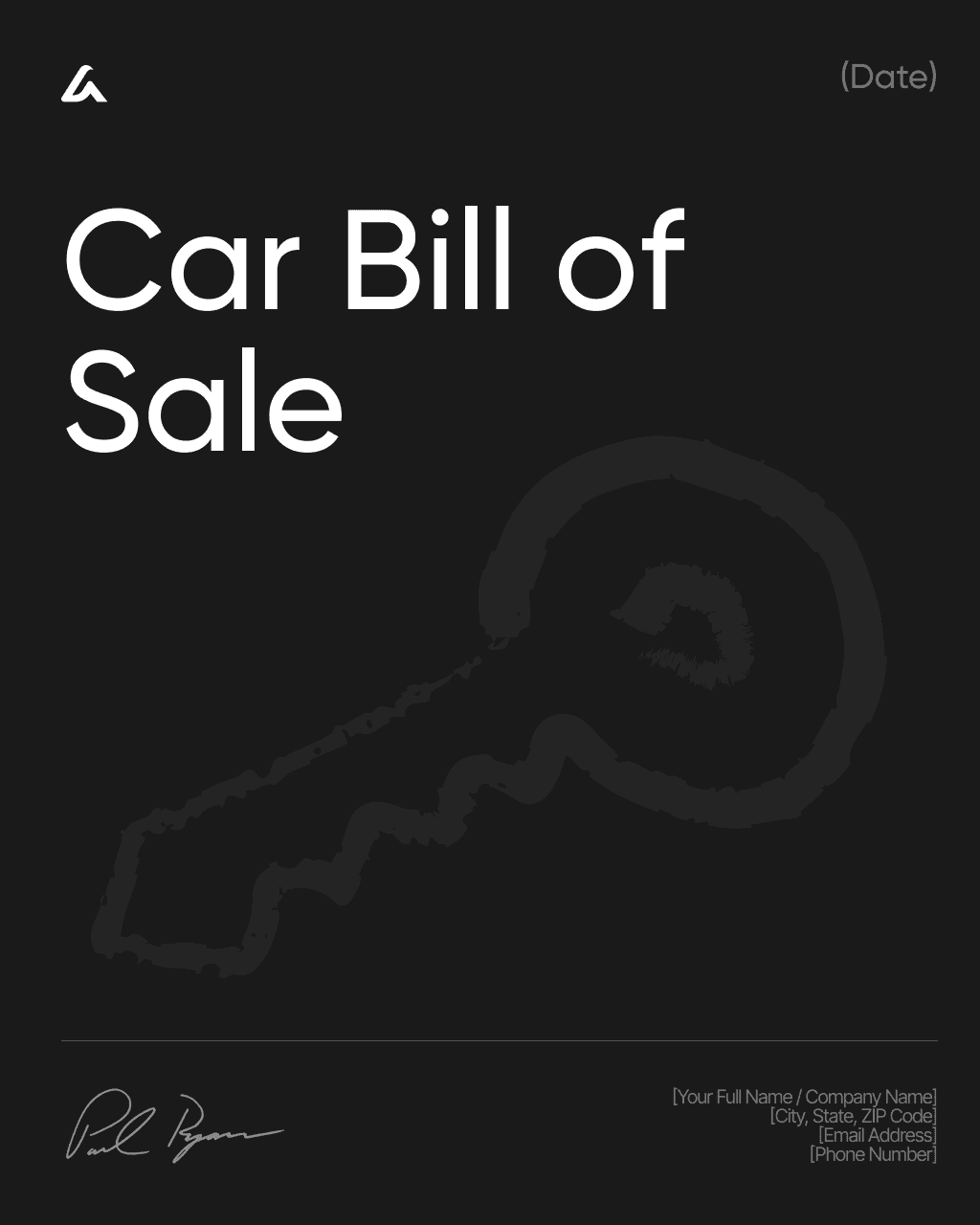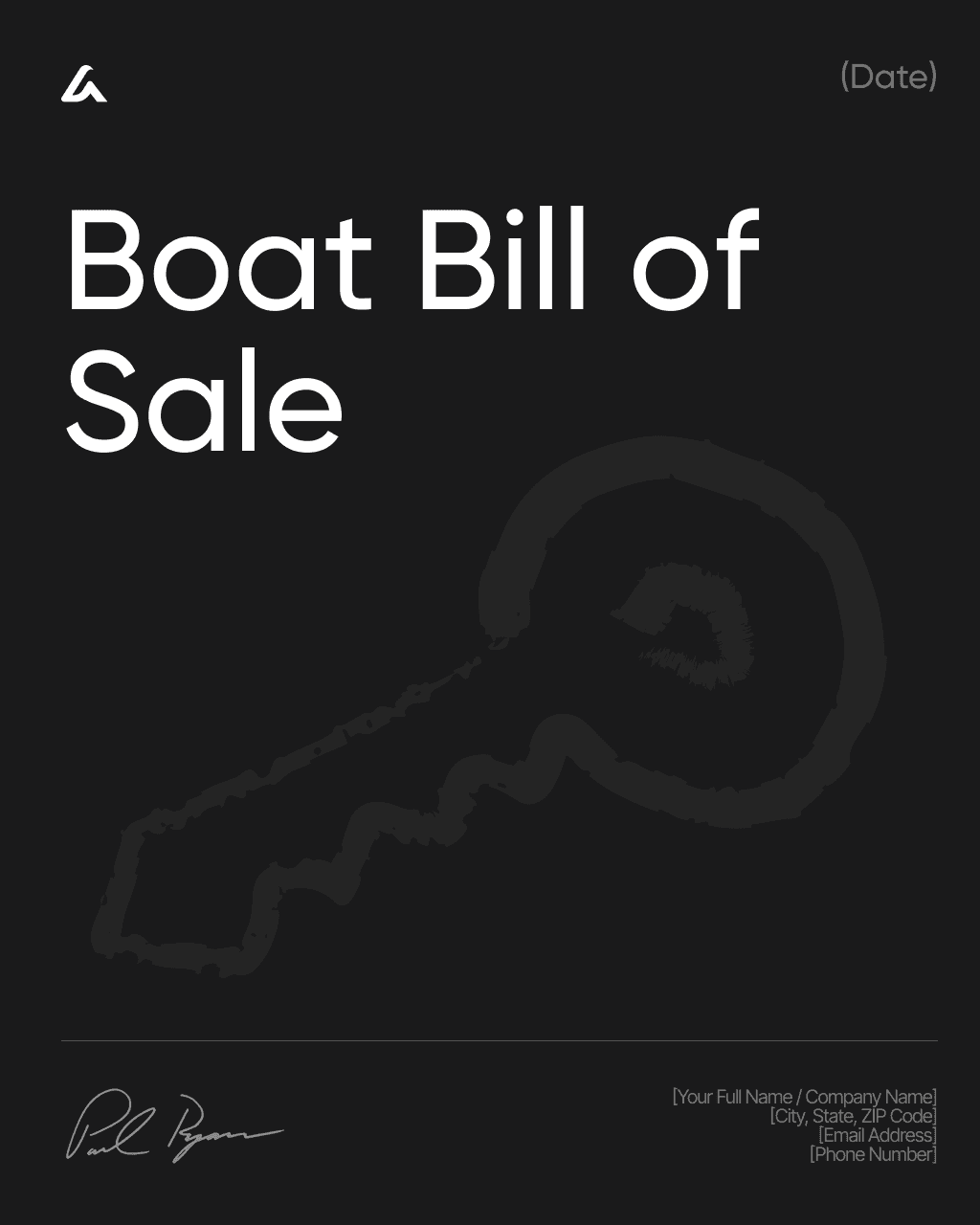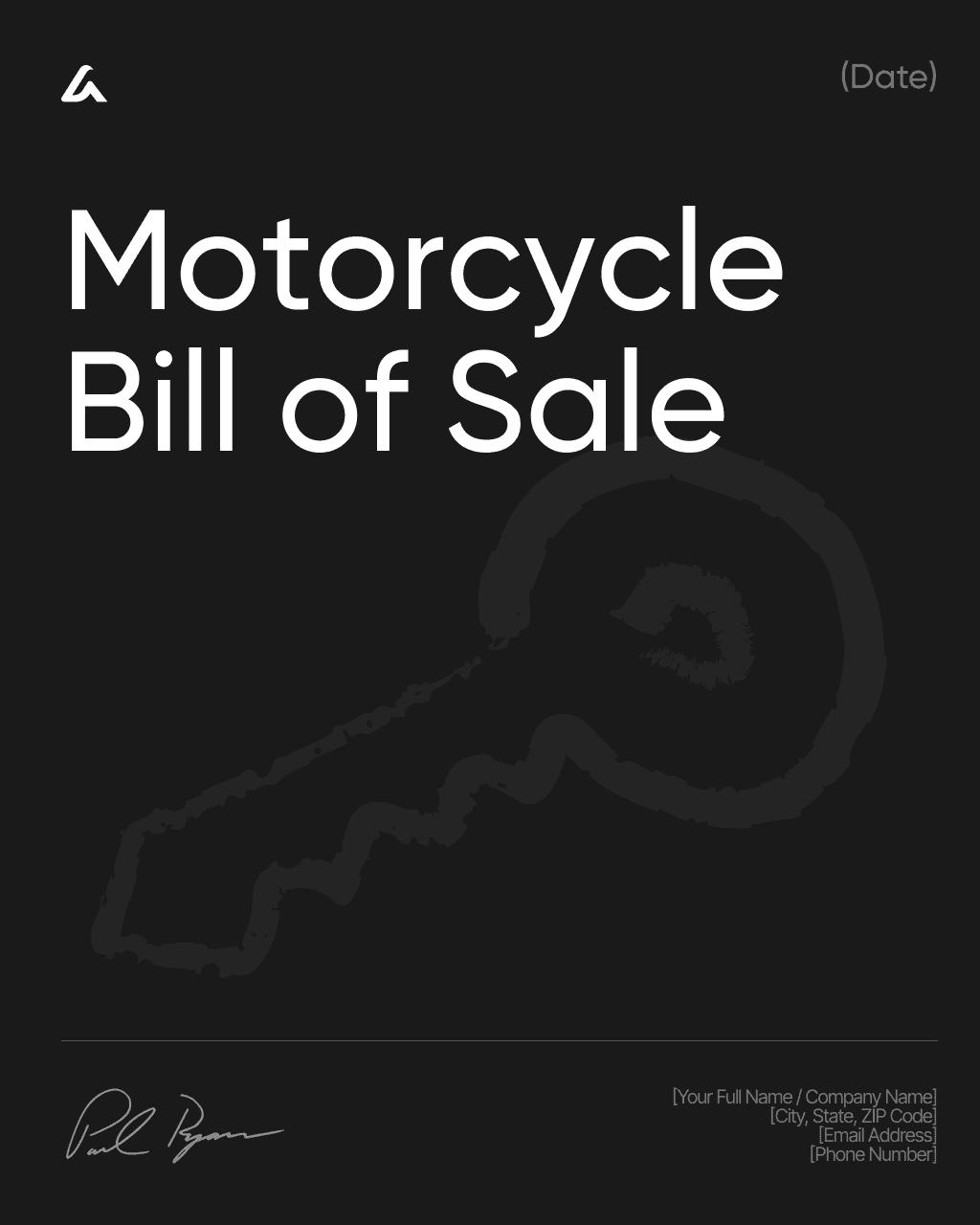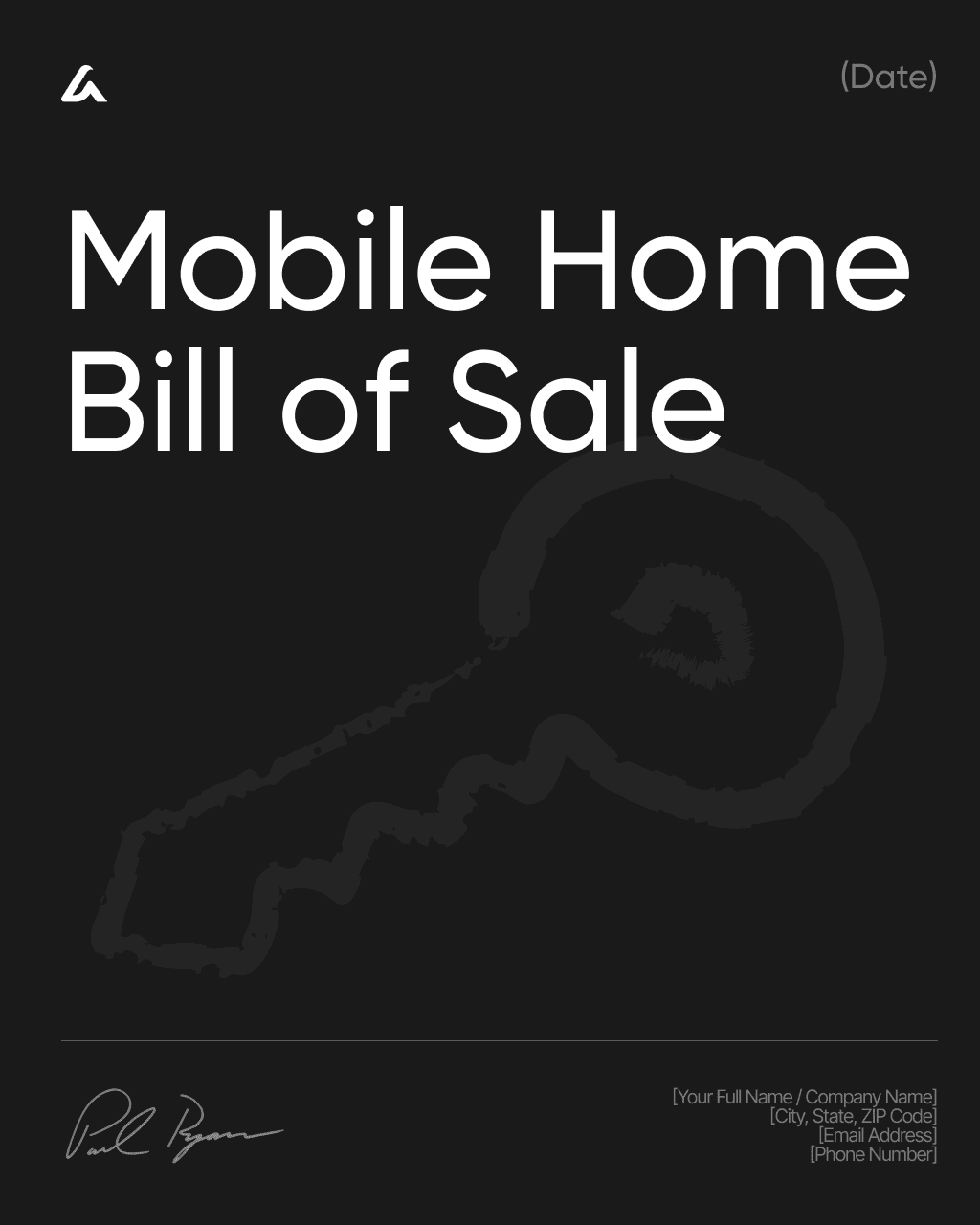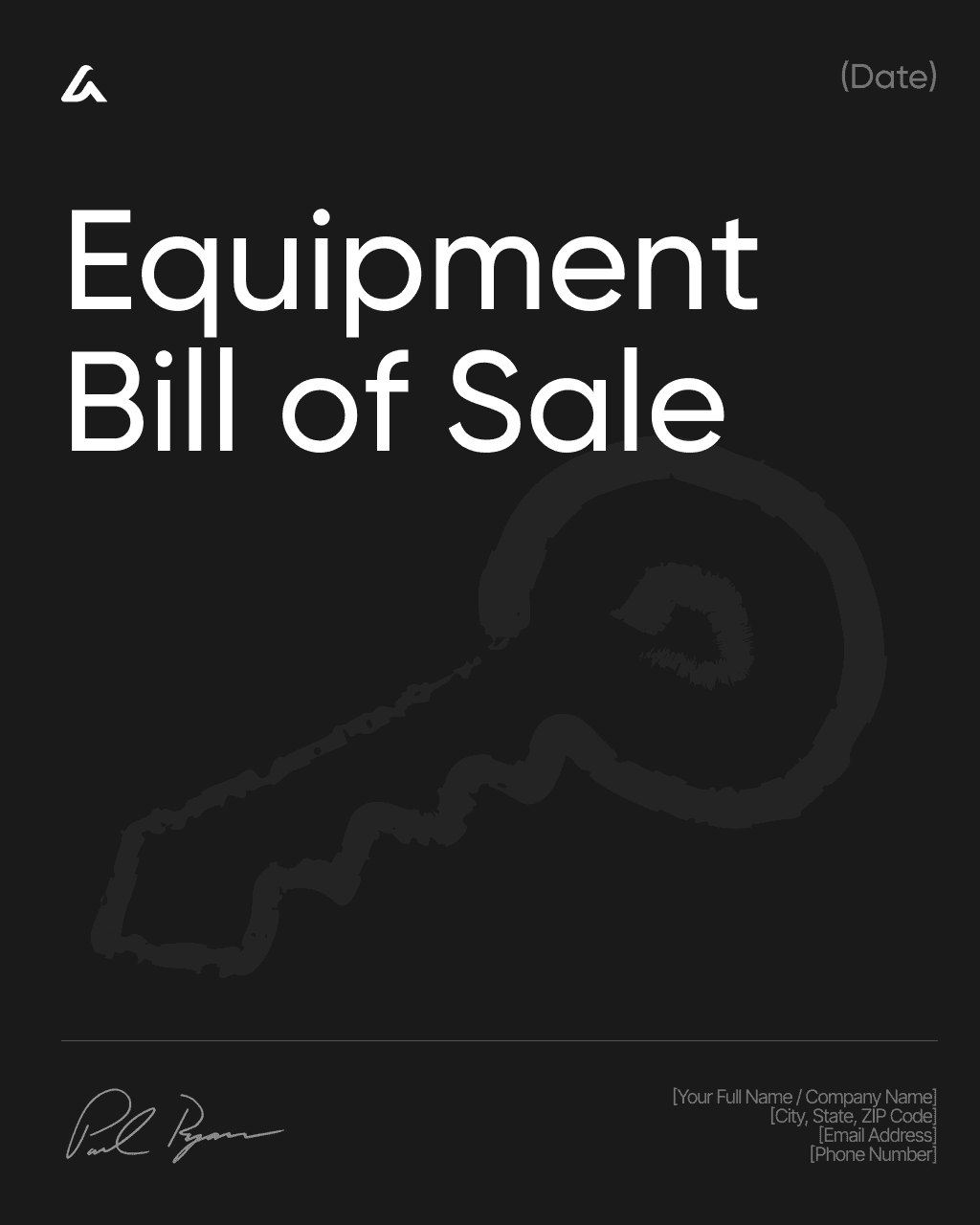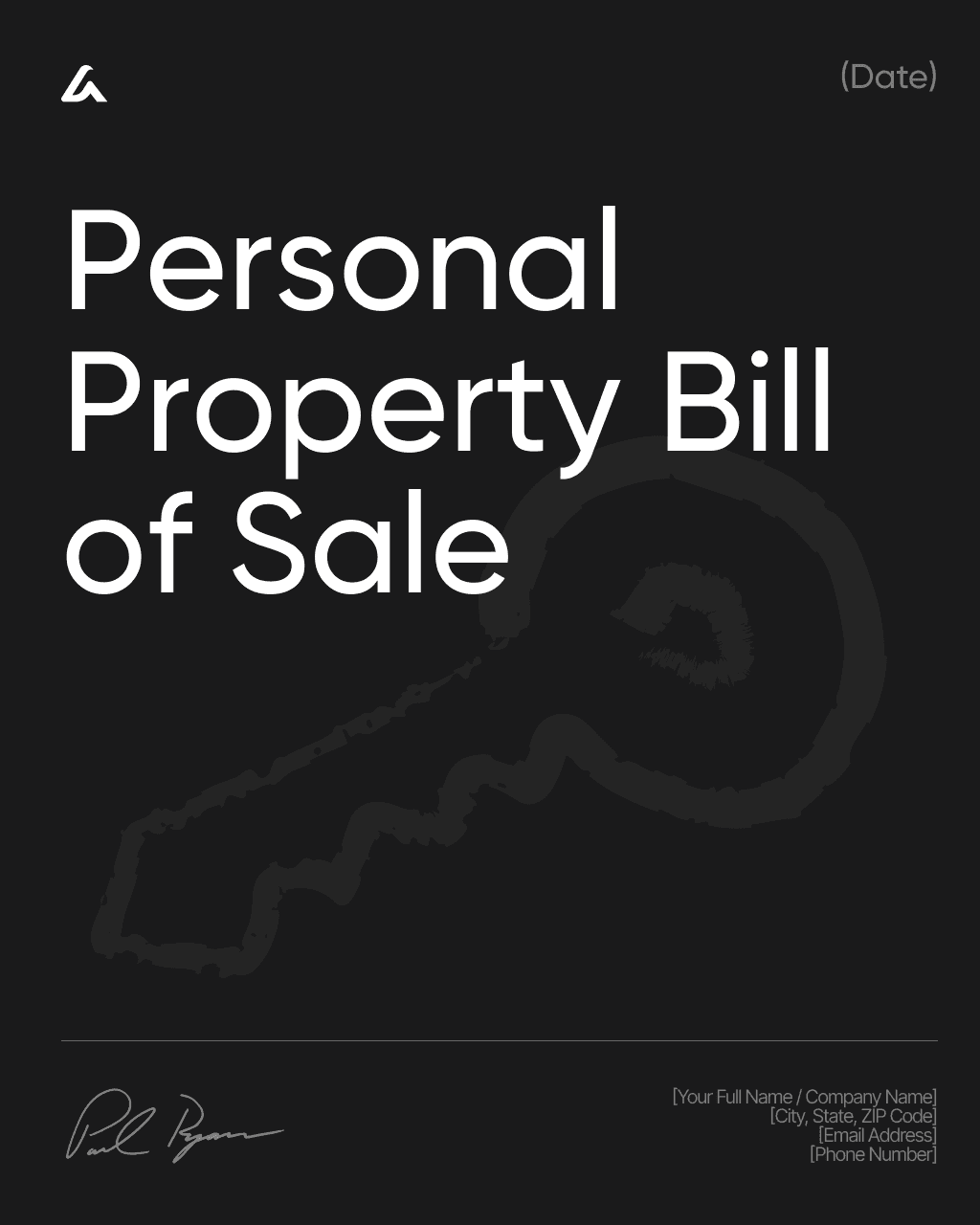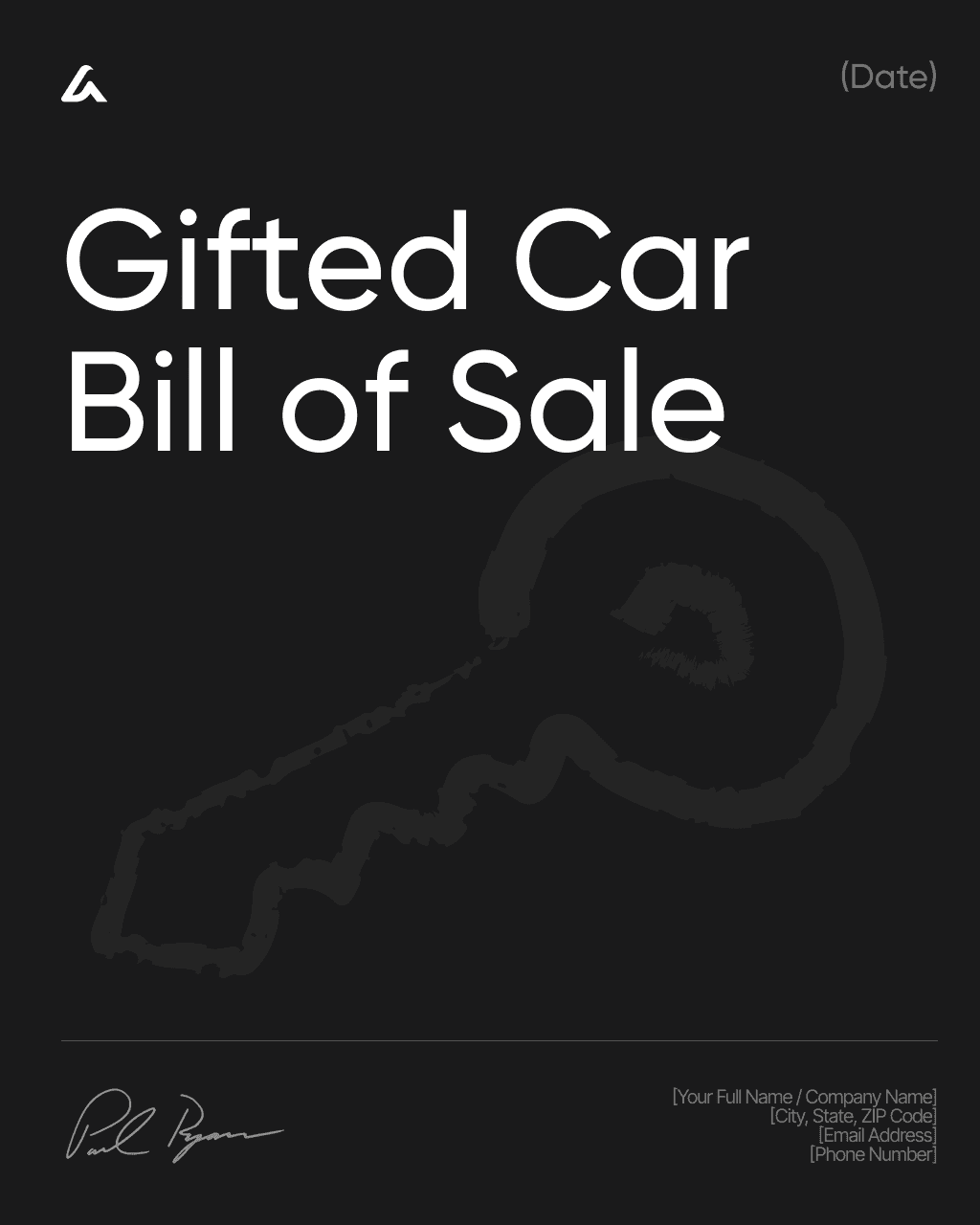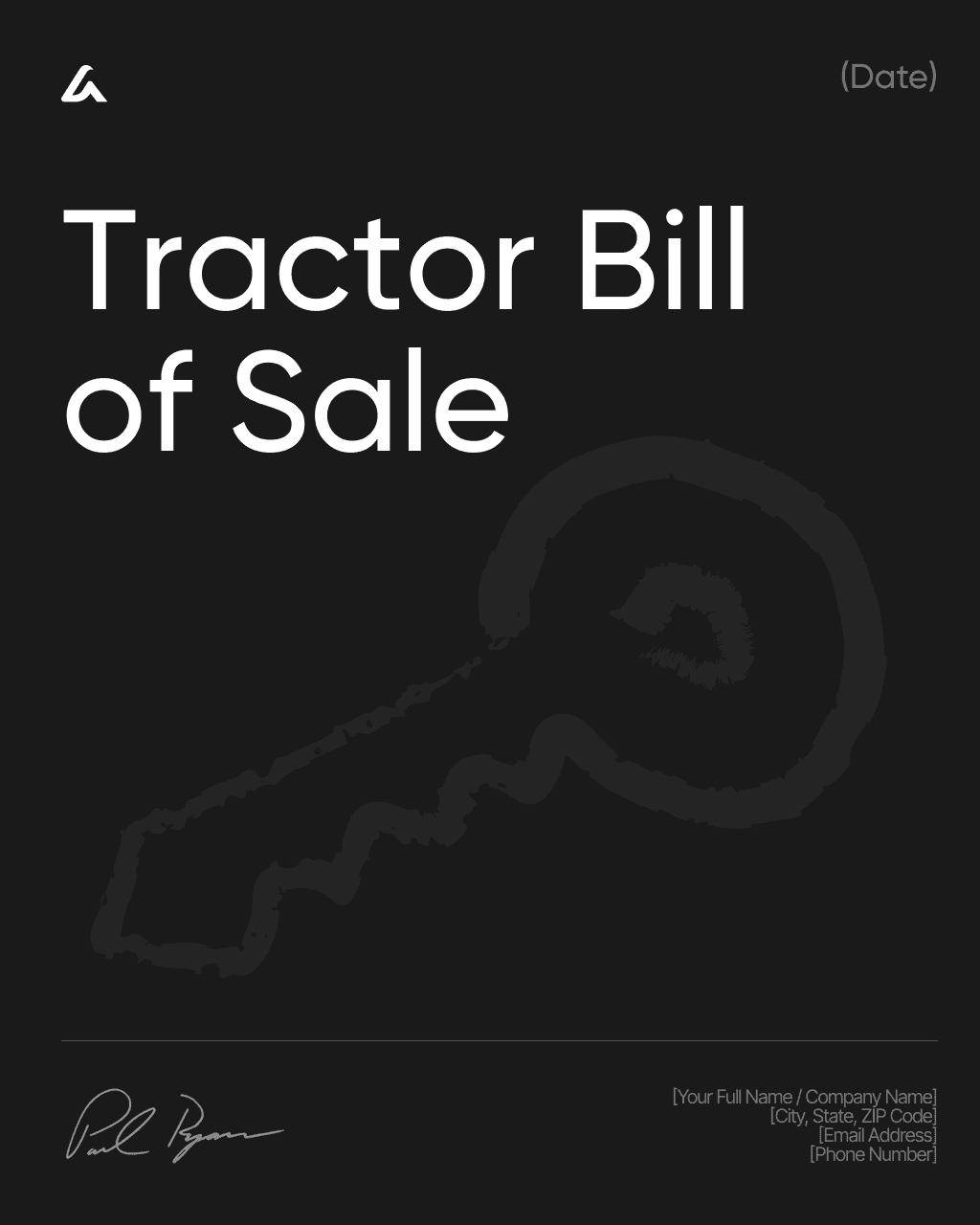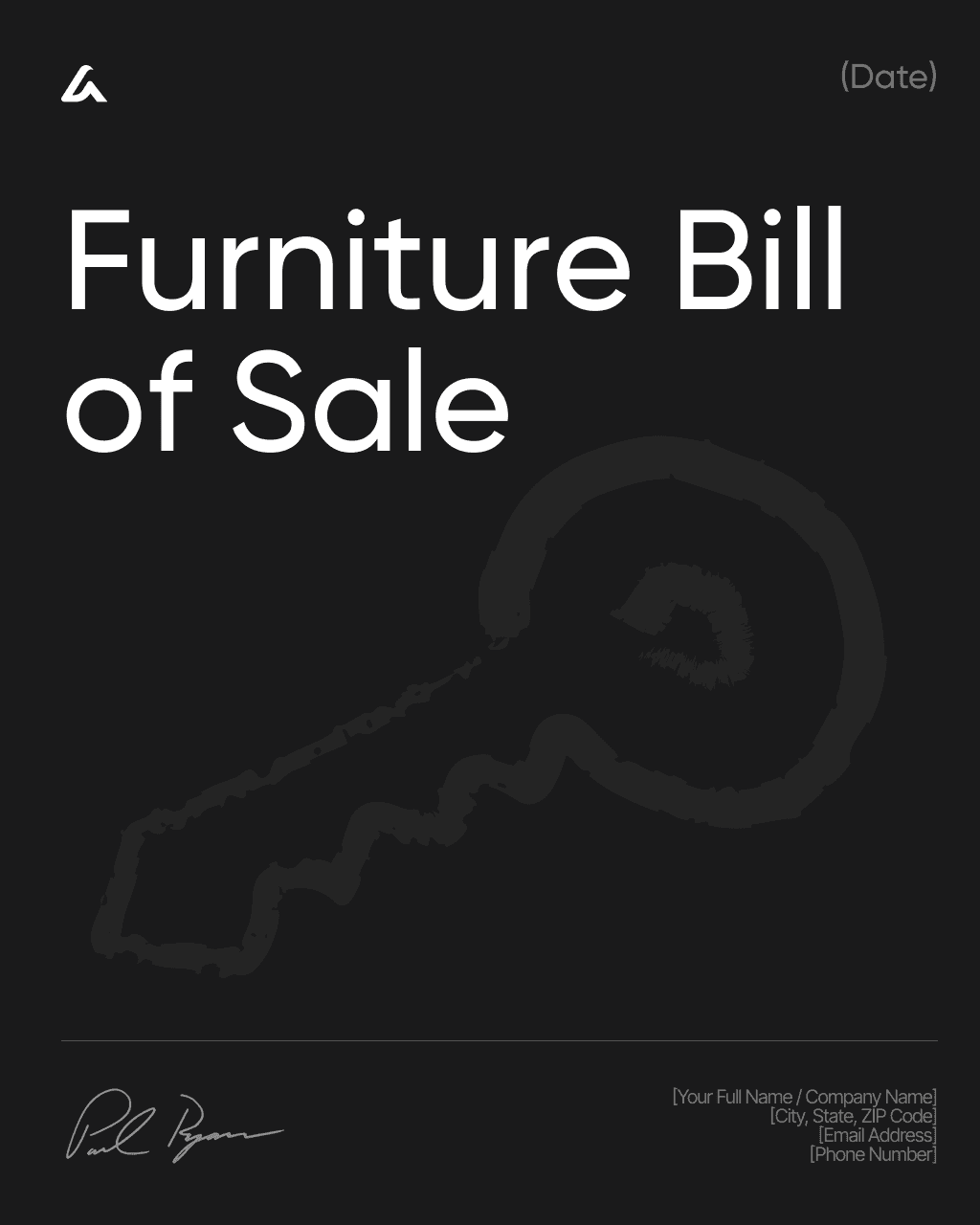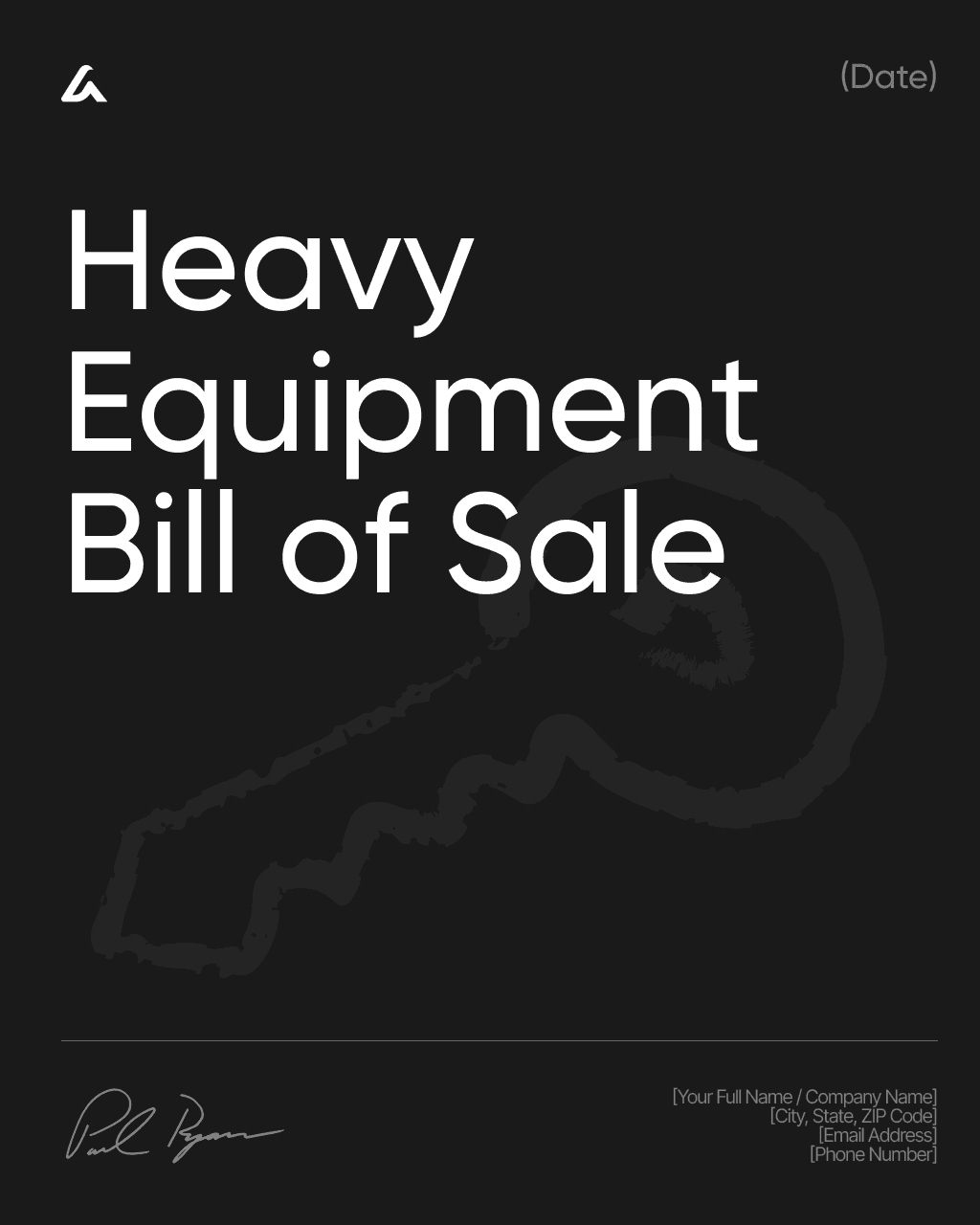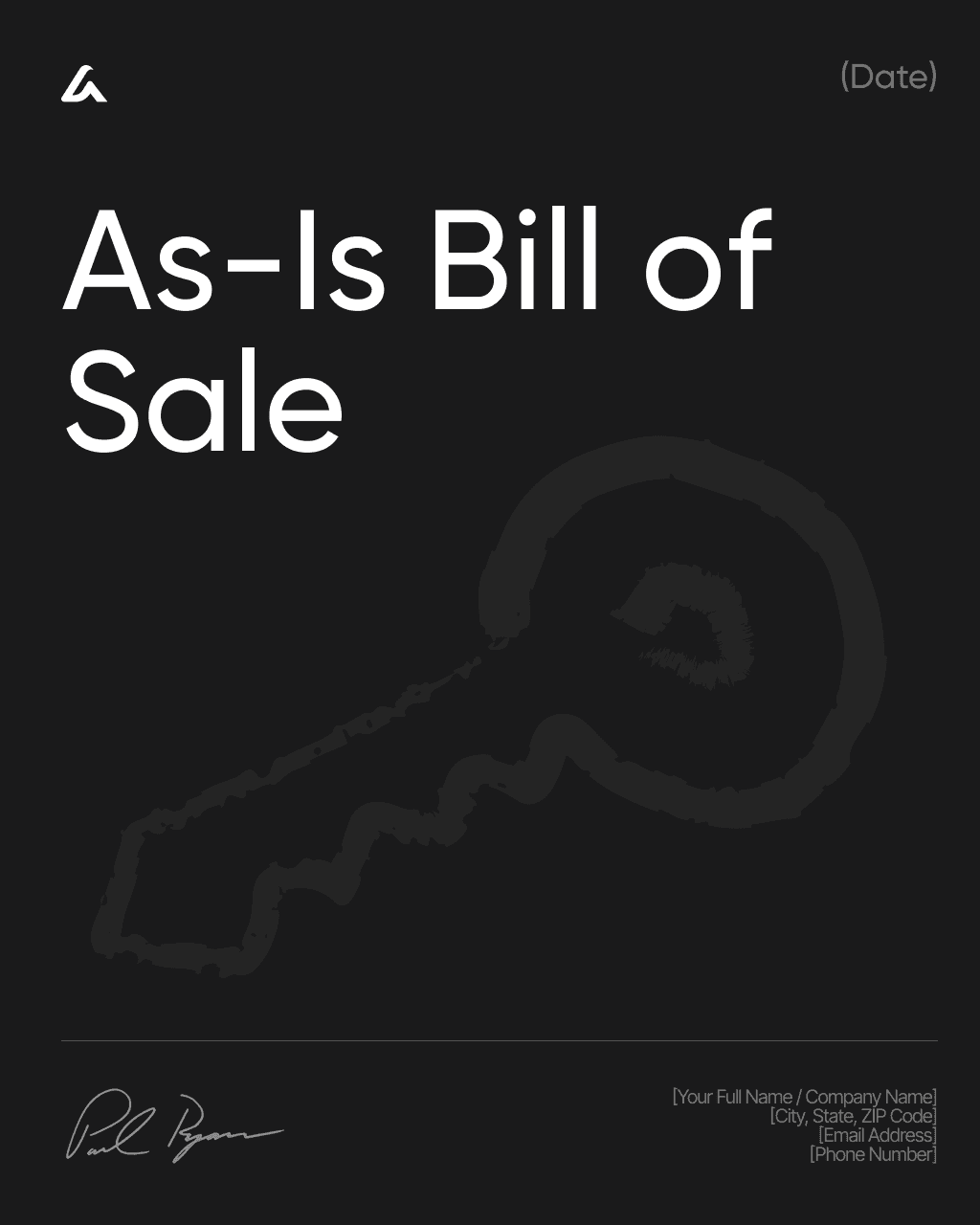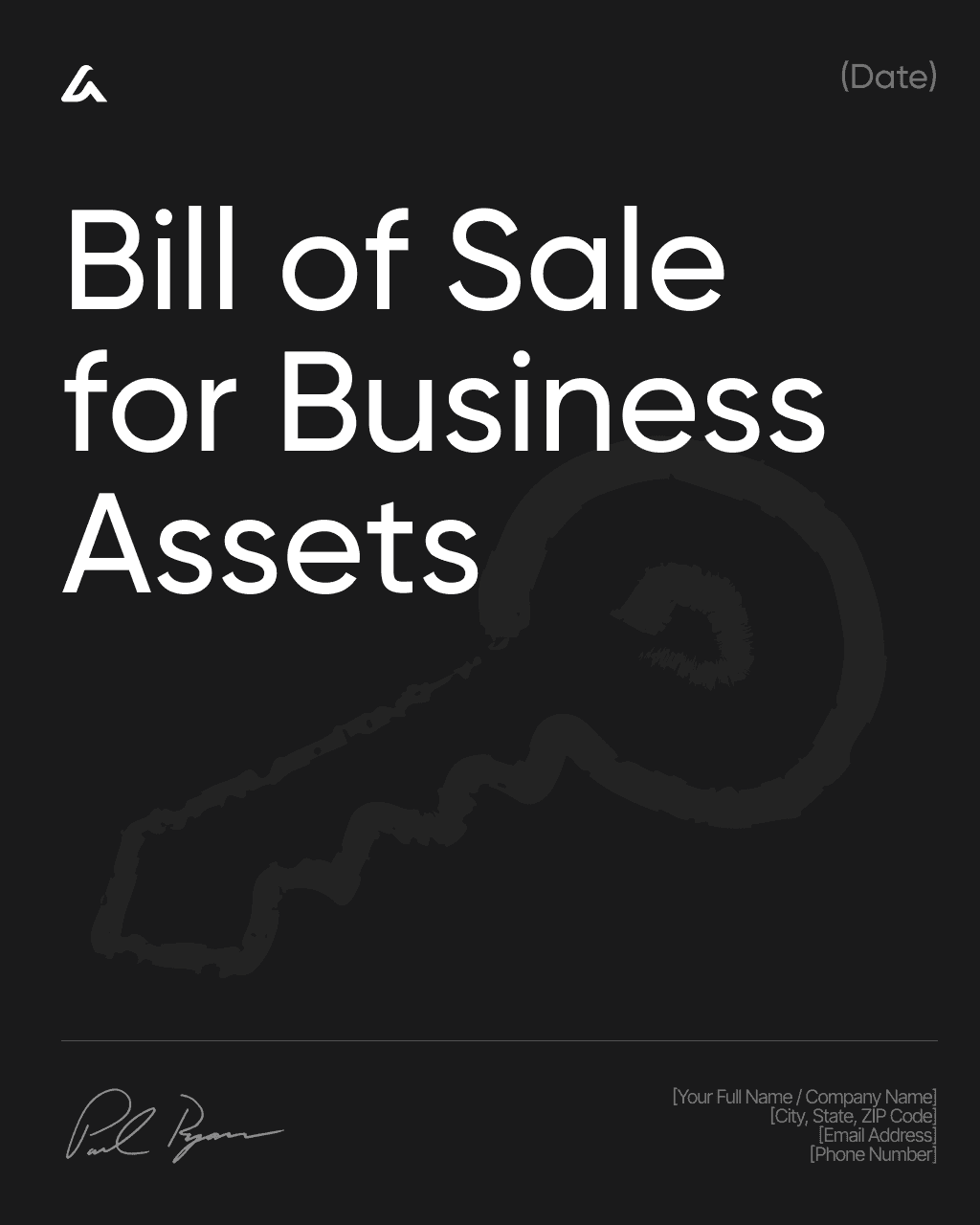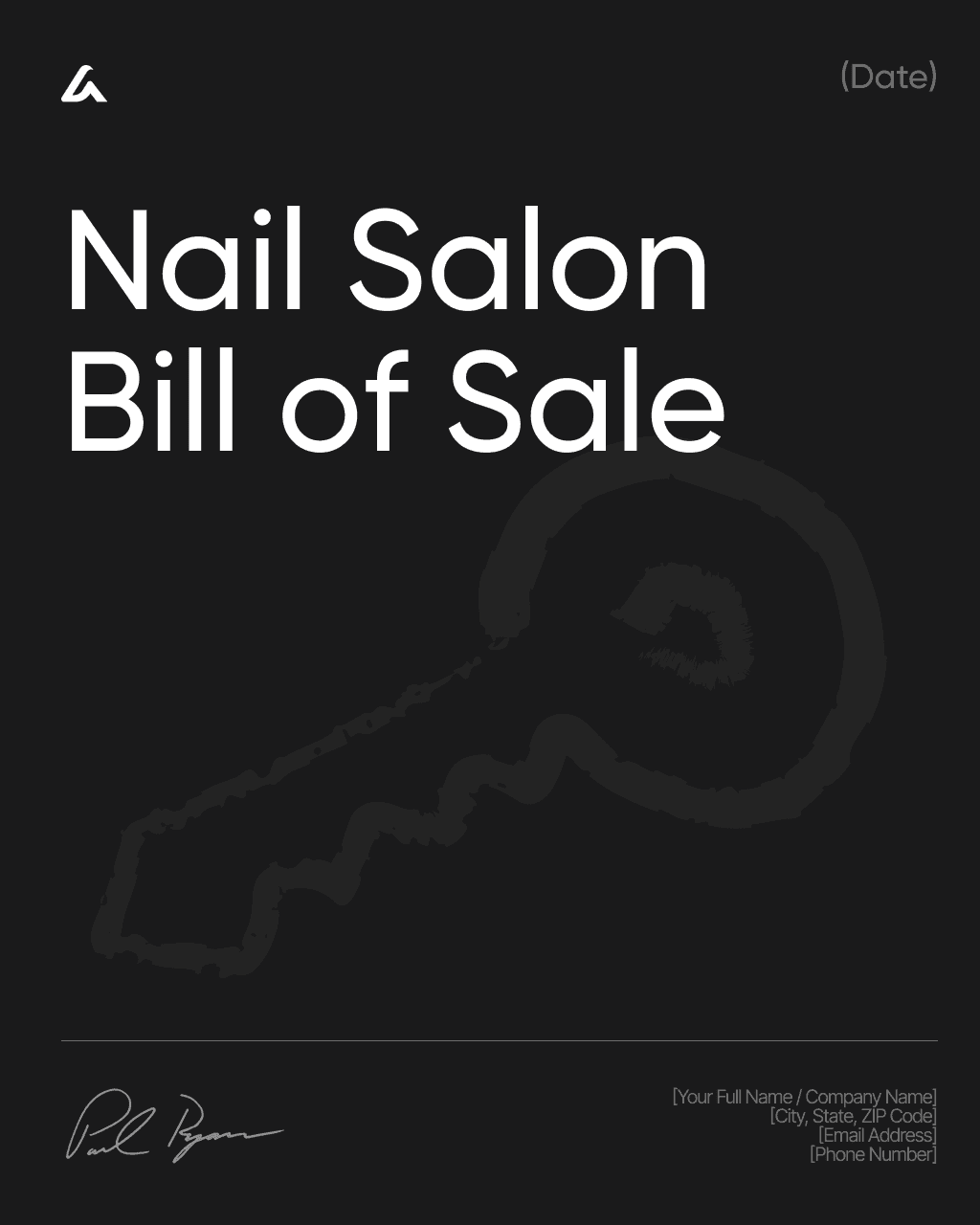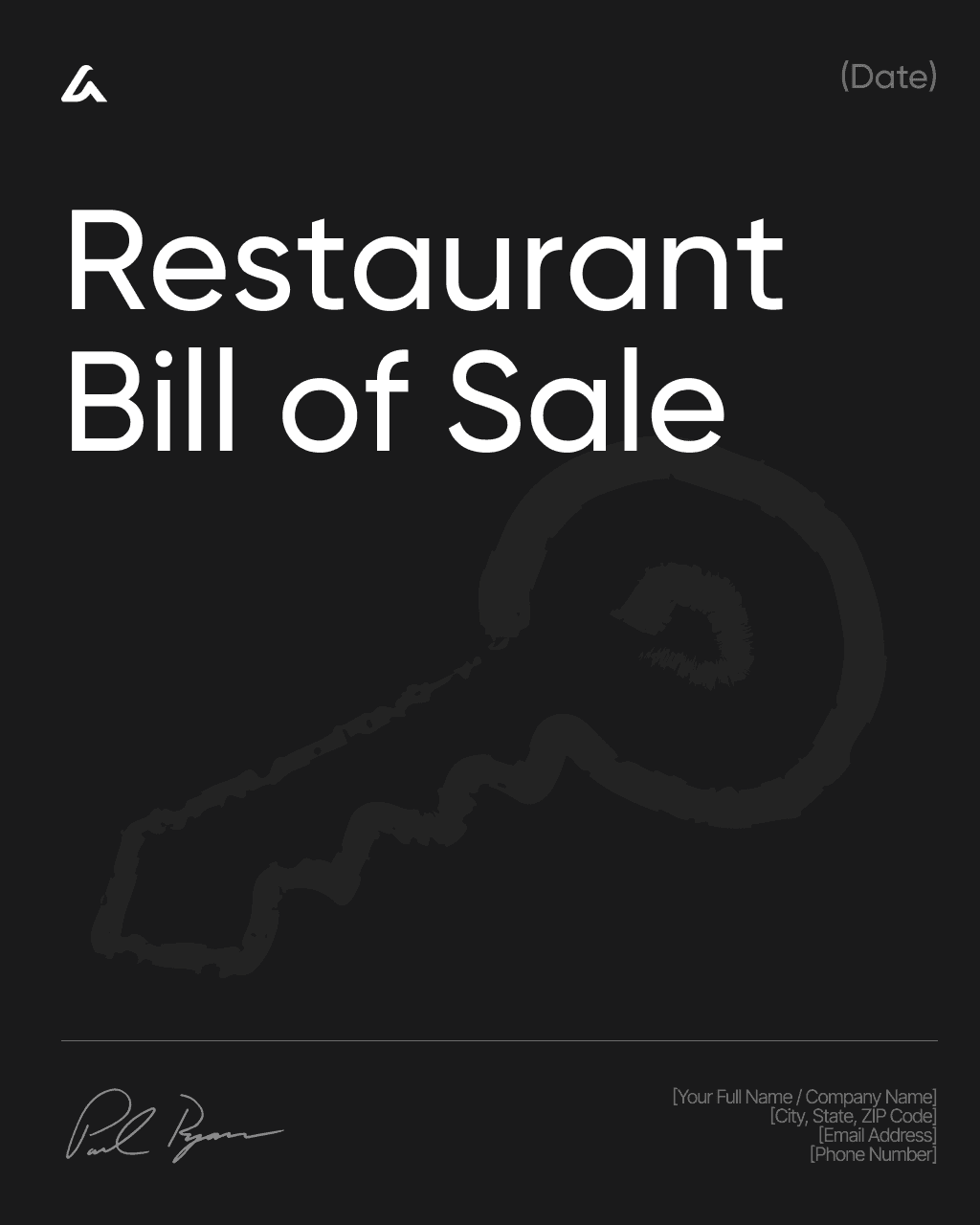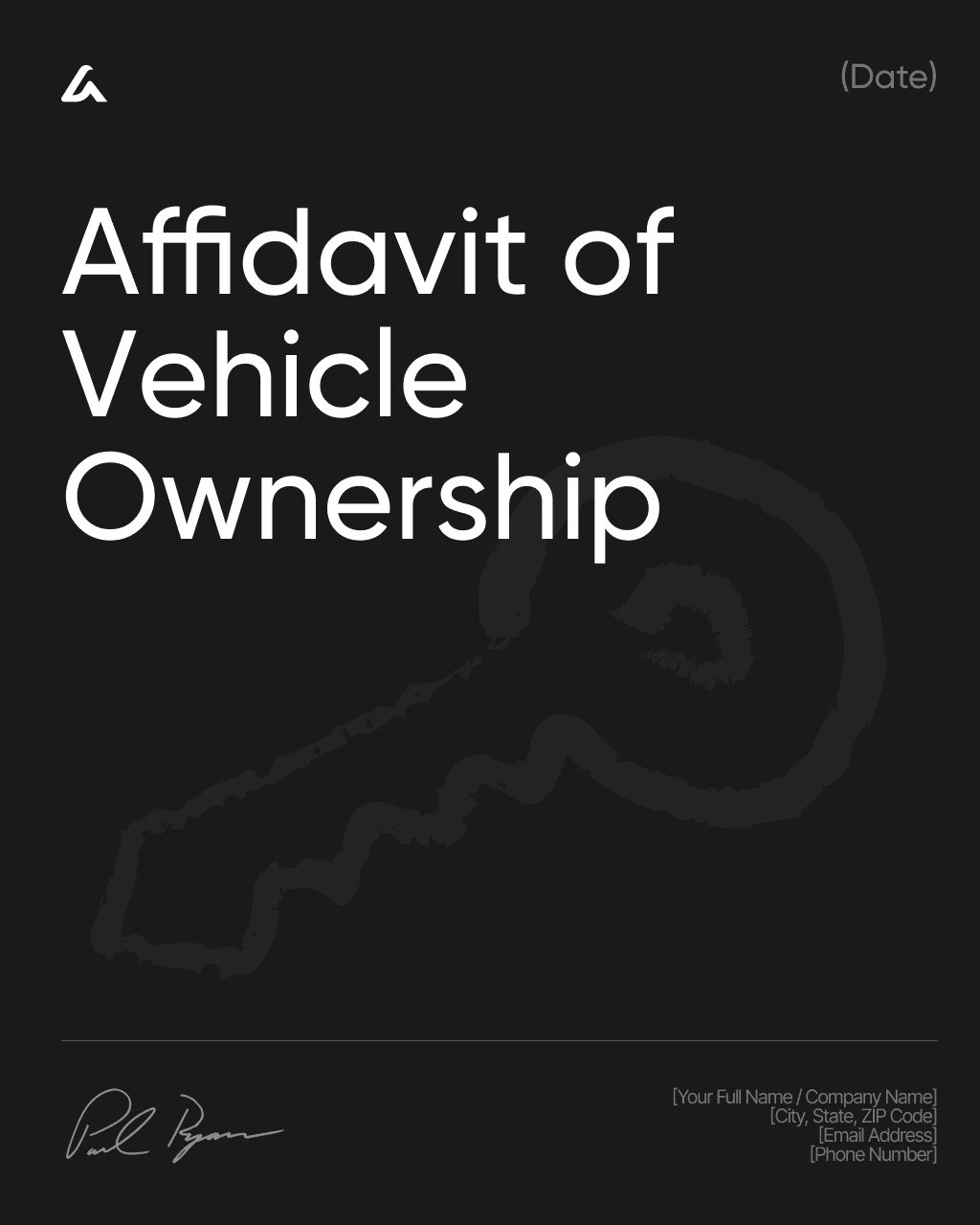Free template
Vehicle Bill of Sale Template: Ownership Transfer & Price Illinois
Draft your custom agreement in seconds with AI Lawyer
Download template
Vehicle Bill of Sale
This Vehicle Bill of Sale ("Agreement") is made on [Date] by and between:
Seller (Current Owner):
[Full Legal Name]
[Address]
[City, State, Zip]
Buyer (New Owner):
[Full Legal Name]
[Address]
[City, State, Zip]
Purchase Amount & Receipt
The agreed price is $[Amount], payable by [Payment Method] on [Date of Payment]. Seller confirms full receipt, inclusive of any deposit of $[Deposit] paid on [Deposit Date].
Vehicle Data
Vehicle Identification:
VIN: [VIN]
Make: [Make]
Model: [Model]
Year: [Year]
Trim/Color: [Trim/Color]
License Plate (if known): [Plate Number]
Odometer: [Mileage]
Any notable defects disclosed by Seller: [List or “None”].
Buyer’s Inspection / Acceptance
Buyer had the opportunity to inspect/test and accepts the Vehicle’s current condition, unless specific written commitments are listed here: [Punch List].
Odometer Disclosure
Transfer mileage: [Mileage]. Select one:
☐ Actual ☐ Exceeds mechanical limits ☐ Not actual (discrepancy).
Seller’s Title; Liens
Seller owns the Vehicle and has the right to convey it. Any lien (e.g., with [Lienholder]) will be released and documented within [X] business days after funds clear.
Filing, Taxes, and Fees
Buyer is responsible for filing title/registration with the Illinois Secretary of State — Vehicle Services and paying taxes/fees within [X] days of transfer. Seller agrees to sign any forms reasonably required.
Delivery / Possession
Possession, keys, and accessories transfer at [Location] on [Delivery Date/Time], at which point risk passes to Buyer.
Acknowledgments / Notary
Where required or requested, notarization or witness signatures will be completed and attached.
Law & Venue
This Agreement is governed by the laws of the State of Illinois. Venue lies in [County/City], Illinois.
Entire Agreement / Amendments
This Agreement supersedes all prior statements. Amendments must be written and signed by both Parties.
Illinois Compliance Notes (placeholders)
Emissions Inspection: [County requirement? ☐ Yes ☐ No ; inspection date: ____ ].
Title Application & Tax: [Buyer files with SOS Vehicle Services; tax (RUT/ST) placeholder].
Proof of Insurance: [Carrier, policy #, effective date; required before registration].
Odometer & Lien Status: [Mileage at transfer: ____ ; Lienholder: ____ / “None”].
Damage/Salvage/Rebuilt Disclosure (if any): [Describe or “N/A”].
Plates/Transfer: [Plate transfer or new issuance per SOS rules].
Notary: [Usually not required; add if requested or for lien documents].
Signatures
Seller’s Signature: _______________________ Date: __________
Printed Name: _____________________________
Buyer’s Signature: ________________________ Date: __________
Printed Name: _____________________________
No time to fill it up? Generate your custom agreement with AI Lawyer in seconds
Details
Learn more about
Vehicle Bill of Sale Template: Ownership Transfer & Price Illinois
Illinois Vehicle Bill of Sale FAQ
What is a Vehicle Bill of Sale?
A Vehicle Bill of Sale is a legal document that records the sale and transfer of a vehicle from the seller to the buyer.
It serves as an official receipt confirming the change of ownership and outlining the agreed-upon terms of the transaction — even if payment isn’t made immediately.
While there’s no national standard form, using a complete and accurate Vehicle Bill of Sale template helps protect both parties and simplifies title transfer or insurance documentation with the Illinois Secretary of State (ILSOS).
When to use a Vehicle Bill of Sale?
A Vehicle Bill of Sale is not legally required in Illinois, but it is highly recommended. It serves as official proof of the transaction and includes key details such as the buyer, seller, sale price, and date. Having this document helps protect both parties in case of disputes and simplifies the process of completing tax and registration paperwork.The buyer will need to submit tax form RUT-50 (or RUT-25 for out-of-state purchases) to the Illinois Department of Revenue when registering the vehicle.
What should be on a Vehicle Bill of Sale?
To avoid confusion and make things easier with the Secretary of State or insurance companies, your Vehicle Bill of Sale should include:
Full names and contact details of both the seller and the buyer
Vehicle details: make, model, year, license plate number, and VIN
Exact date and time of the sale (to protect against future fines or tickets)
Total sale price and payment method
A statement that the vehicle is sold “as-is” (unless a warranty is provided)
A declaration that the vehicle is free of liens or outstanding loans
Any additional terms agreed upon (such as included accessories or known defects)
Signatures of both parties
Using a professional Vehicle Bill of Sale template ensures no essential information is missed — especially for businesses or frequent sellers, where incomplete documents can lead to costly disputes.
What if the vehicle’s condition doesn’t match what’s stated in the Bill of Sale?
If the vehicle’s condition doesn’t match what’s stated in the Bill of Sale, first contact the seller in writing to try to resolve the issue — for example, by requesting repairs, a refund, or a price adjustment. If that doesn’t work, document the problems with photos or a mechanic’s report and consider your legal options. Providing false or misleading information about a vehicle’s condition, mileage, or title status can be considered misrepresentation or fraud, giving the buyer grounds to cancel the agreement or take legal action. Acting quickly is important, and you can also file a complaint with the Illinois Attorney General’s Consumer Protection Bureau. Always make sure the Bill of Sale accurately describes the vehicle and clearly states if it is sold “as-is,” unless a warranty is provided.
What happens if the Vehicle Bill of Sale and the title show different sale prices?
If the sale price listed on the Vehicle Bill of Sale differs from the amount written on the title, it can create serious legal and tax issues. Most motor vehicle agencies and tax authorities use the Bill of Sale to calculate sales or use tax, and inconsistent information may trigger an audit or delay registration. The buyer could be accused of underreporting the purchase price to avoid taxes, and the seller might face questions about misrepresentation. To fix the issue, both parties should correct and re-sign the Bill of Sale so that it matches the title. If the title has already been submitted, contact your state’s motor vehicle department to file a corrected version or supporting statement explaining the discrepancy. It’s important that all documents — the Bill of Sale, title, and payment records — show the same sale price to confirm the legitimacy of the transaction.
Similar templates









